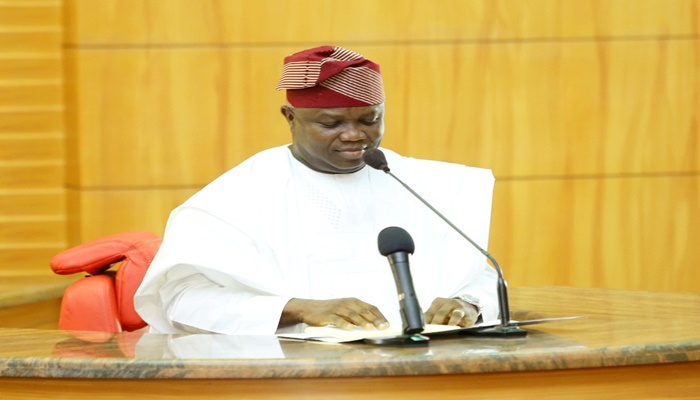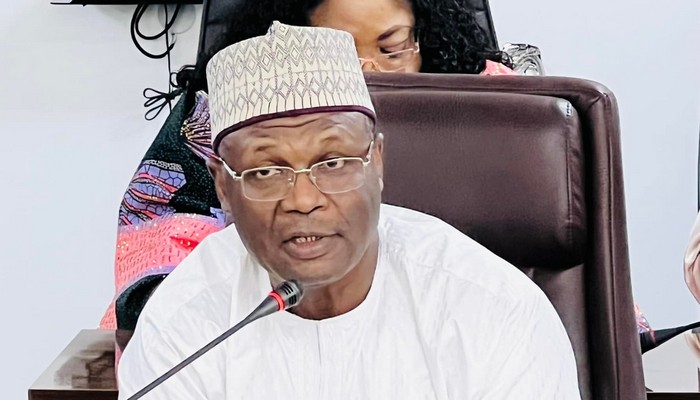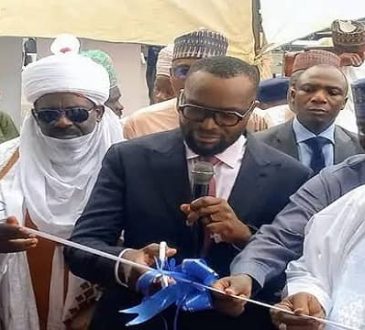
Following the recent decline in oil prices, federation account allocations to states have dropped by an average of about N2 billion monthly per state, which partly explains their inability to meet some basic recurrent expenditures including payment of workers’ salaries. As a result of this, the government of Lagos has recently boosted her revenue in order to settle immediate recurrent obligations. NIYI OLAOYE, therefore, writes on how Lagos State has been recognized as one state in the federation that quickly understood the goldmine in taxation as the major source of government revenue.
The Lagos State government has been celebrating the achievement of greater Internally Generated Revenue (IGR) even at a time when the Nigerian economic situation has particularly hampered the effectiveness of most state governments in carrying out state functions and paying workers’ wages,
It has even continued to execute developmental projects, expanding the infrastructural profile of the state’s landscape and also instituting numerous welfare and empowerment schemes for its citizens.
Business247 News Online notes that Lagos State recorded more IGR in 2016 than what was recorded in 2015. As at December 16, 2016 the state had raked in N287 billion IGR for the year as against N268.2 billion generated in 2015. Available records from National Bureau of Statistics (NBS) show that the state earned N202.76 billion in 2011, N219.2 billion in 2012; while the sums of N384.25 billion, N276.16 billion and N268.2 billion were generated in 2013, 2014 and 2015, respectively.
Latest statistics of NBS revealed that a sum of N3.5 trillion was earned as IGR by 36 states of the federation within a 66-month period from January 2011 to June of 2016.
It showed that the IGR of the 36 states recorded a sharp increase between 2011 and 2013, after which it declined steadily up to 2016. For instance the sum of N499.08 billion was earned by states in 2011. The figure rose to N 567.99billion and N800 billion in 2012 and 2013, respectively.
However, in 2014 and 2015, the states’ combined revenue dropped by N92.15 billion and N25.18 billion to N707.85 billion and N682.67 billion, respectively.
According to NBS, the IGRs were generated from: Pay-As-You-Earn; direct assessment; road taxes; ministries, departments and agencies of government and other revenues.
Further analysis showed that Lagos State, with a total of N1.35trillion generated in the 66-month period, led the IGR collection chart.
Lagos State Governor, Mr Akinwunmi Ambode on this note, hailed tax payers in the State for performing their civic obligations faithfully. Ambode said the taxes paid by the people have been judiciously utilised to upgrade infrastructures and provide various services, just as he said that Lagosians deserved to be appreciated for cooperating with government in that regard.
“The tax payers are the ones giving us the little energy that we have even though they say Nigeria is in recession, but somehow Lagos has been able to do it and it is because people are paying their taxes,” he said.
In November 2016, the governor had given a hint of this feat at a public forum when he said the state has the potential to generate N50 billion monthly as internal revenue. Ambode made this known at a colloquium on the state of the nation, organised in Ikoyi, Lagos, by the Coalition of Nigerian Apostolic Leaders (CNAL), an affiliate and the Nigerian arm of the International Coalition of Apostolic Leaders.
The governor said that whatever the state was realising at that moment as internally generated revenue was only 65 per cent of what it could achieve.
He added that the state government had the population and the youth to achieve the target and was working on critical policy objectives that would unlock the state’s potential to build a more vibrant economy.
Lagos State has been recognised as one state in the federation that quickly understood the goldmine in taxation as the major source of Government revenue. But how well the state and other states following its template have been able to apply basic principles that should guide a good tax system remains a subject of debate.
Outlook on taxation in Nigeria
In his 2017 tax and fiscal policy prospects, Taiwo Oyedele, Head of Tax and Regulatory Services at PwC Nigeria and Tax Leader for PriceWater Coopers (PwC) West Africa gave reason why tax revenue will continue to be disappointingly low in 2017.
His words: “It is counter-intuitive that many politicians play politics with revenue generation by placing political considerations ahead of professionalism. Unfortunately, many lawmakers, administrators and policymakers lack proper understanding of the tax system.
“This coupled with undue political interference and vested interests mean that tax revenue will continue to be disappointingly low.”
According to Oyedele, as a country, Nigeria has expectations for tax, so do individuals and organisations. To a large extent and under normal circumstances, tax should be relatively more predictable given that the rules and administration are totally within the control of appropriate authorities.
This view re-echoes the idea behind the canon of certainty. This is unlike attempting to predict the weather for a whole year or other natural and supernatural events
In 2017, the tax expert in his prediction said, “It is expected that due to losses being reported by many companies, in addition to other tax attributes such as unutilised capital allowances, the government tax take will be lower than anticipated, especially from Companies Income Tax.
“VAT collection is likely to improve partly due to the impact of the government social welfare scheme of conditional cash transfer and increased enforcement of compliance by FIRS, but will still perform much below its potentials.
“The Tax Appeal Tribunal will be reconstituted. The aggressive level of tax audits by tax authorities especially the progress being made by the FIRS regarding transfer pricing reviews will lead to more disputes and hence a rise in tax appeal cases. The Federal Capital Territory (FCT) Internal Revenue Service will make some progress towards the full implementation of its mandate.
“Adoption and implementation of e-tax systems by various tax authorities will continue to be slow and ineffective. More stakeholders will trigger the necessary provisions of the Freedom of Information Act to request for relevant information on tax administration, spending and expenditure control.
“Some of the initiatives by the FIRS such as joint audit and use of consultants will continue to face implementation hurdles and unlikely to yield any major results.”
Finally, Oyedele said, “Just in case you do not have any New Year resolutions for tax, you need to commit to paying your taxes correctly and on time. Tax will not just be a compliance matter but a business continuity and sustainability issue.
“More importantly, as a taxpayer, you must hold government accountable for the taxes paid. This will create more tax awareness and citizen engagement.
“Overall, the tax journey in 2017 will be bumpy, but I am cautiously optimistic that it will end in safe landing albeit with some bruises.”






